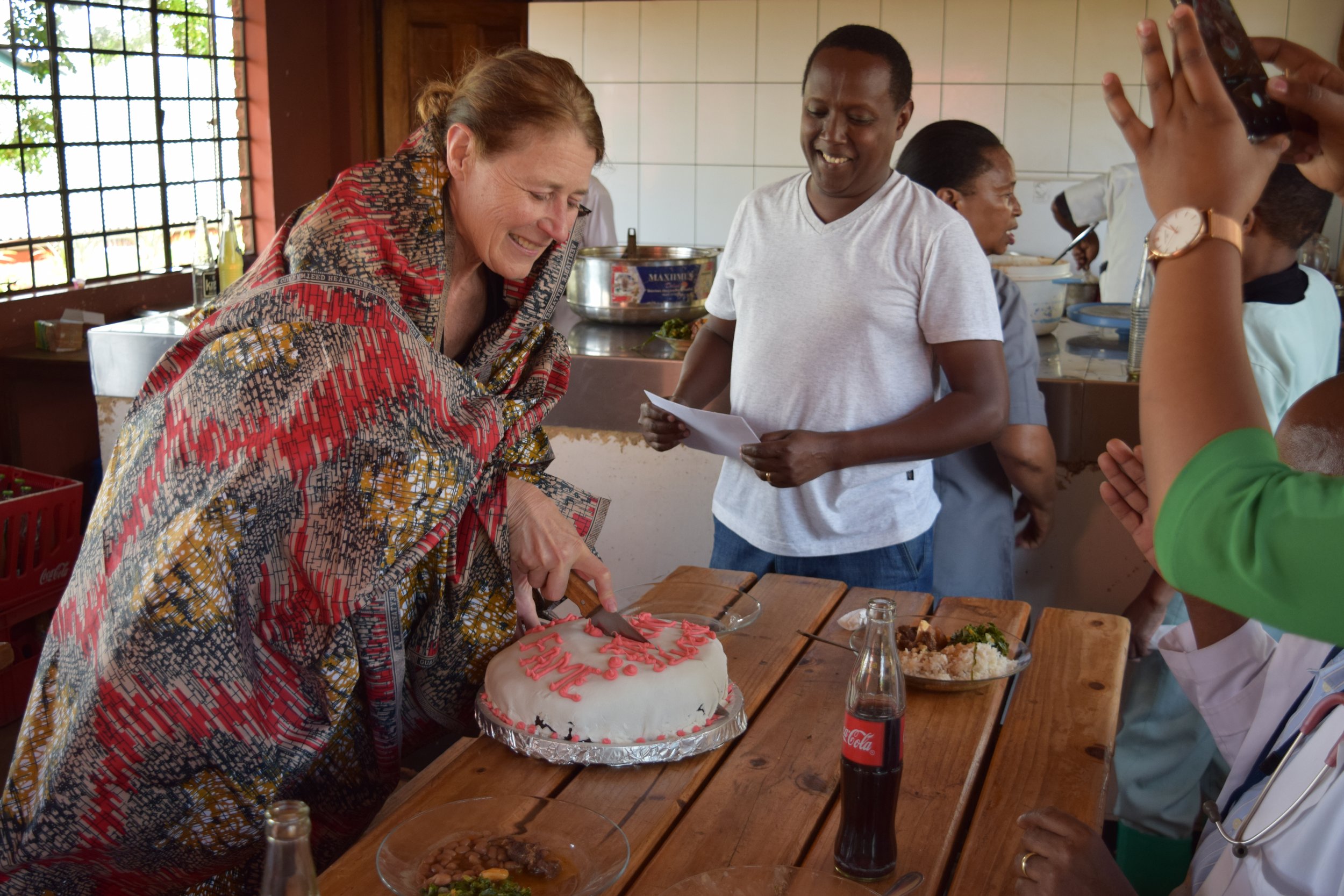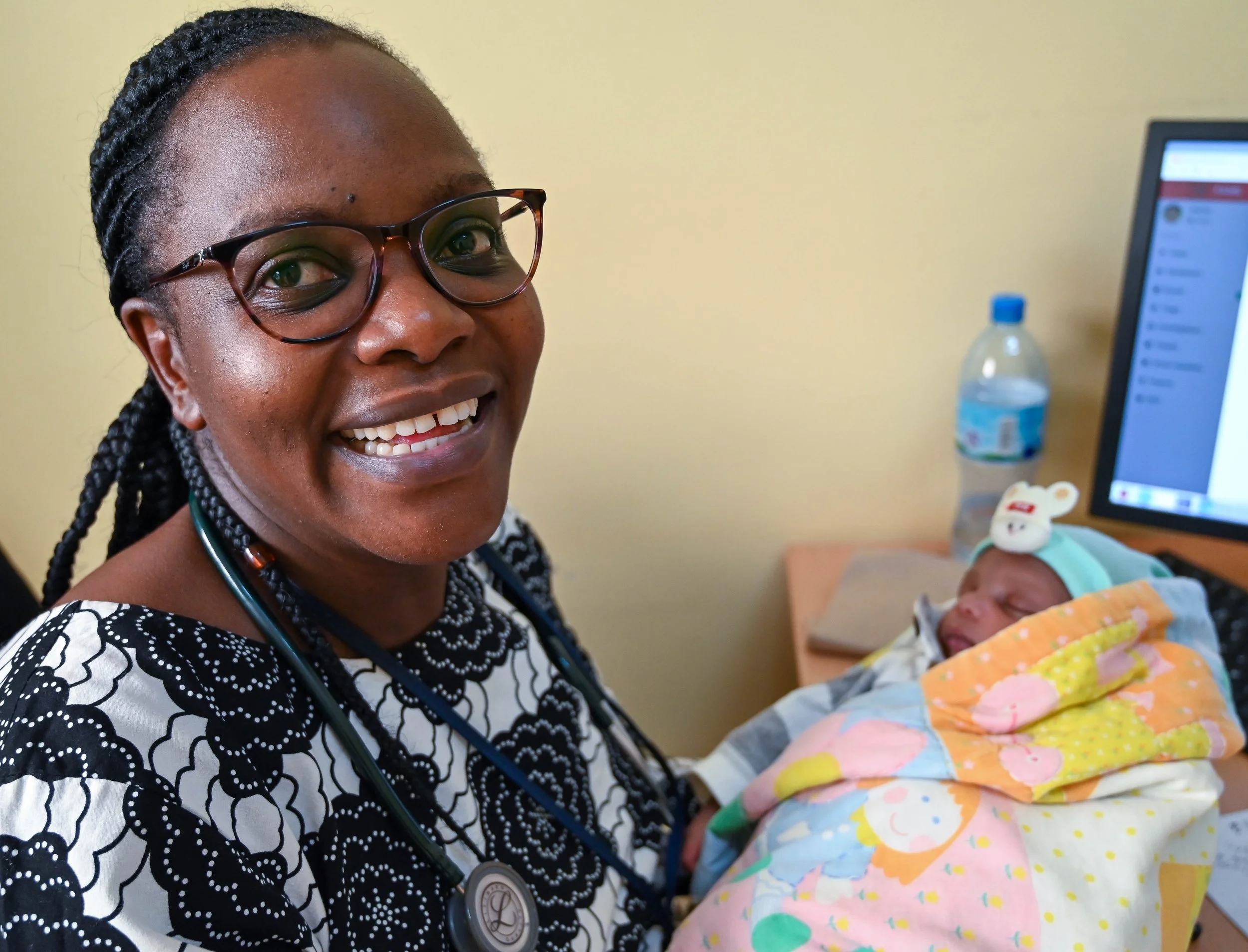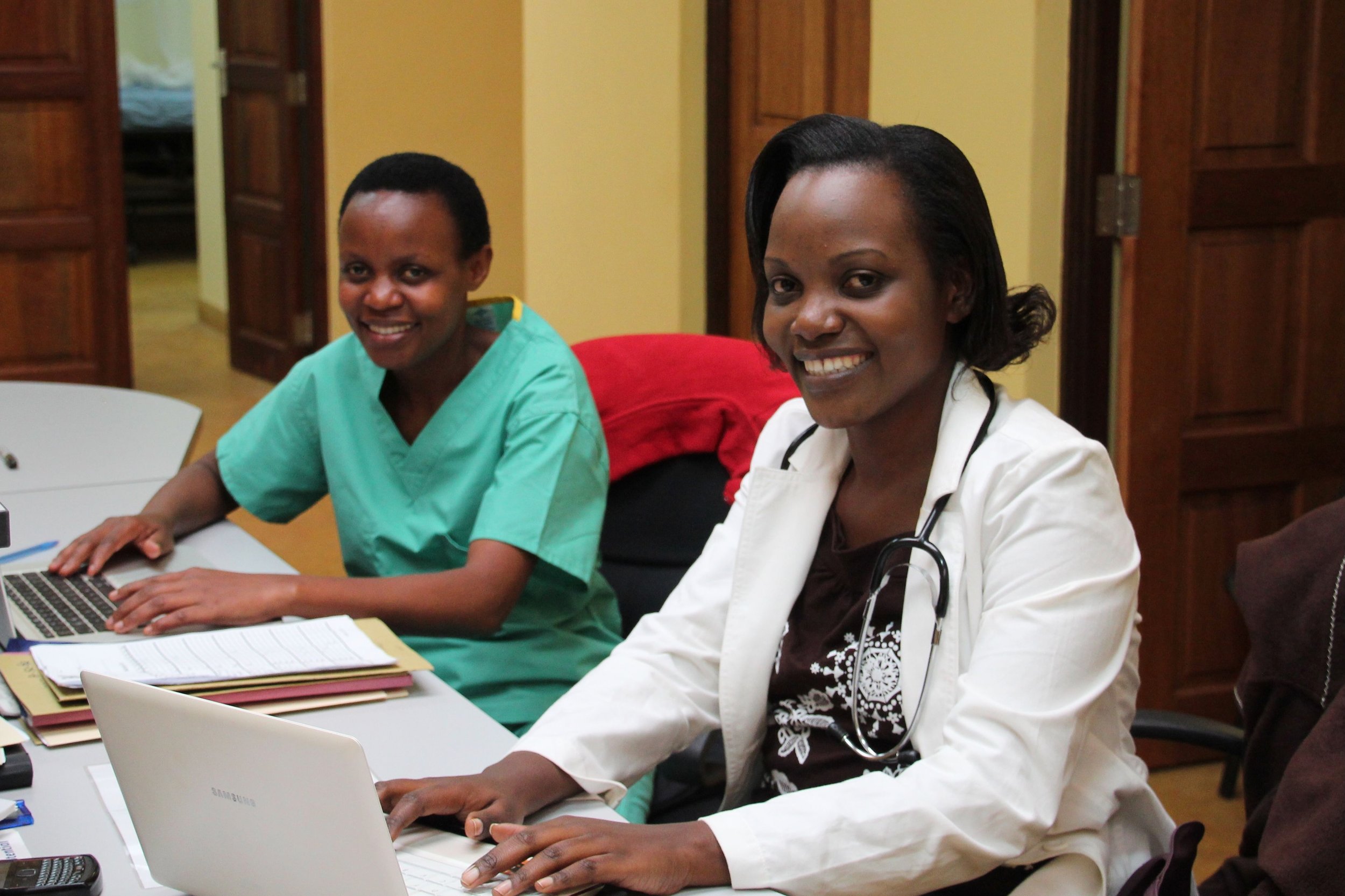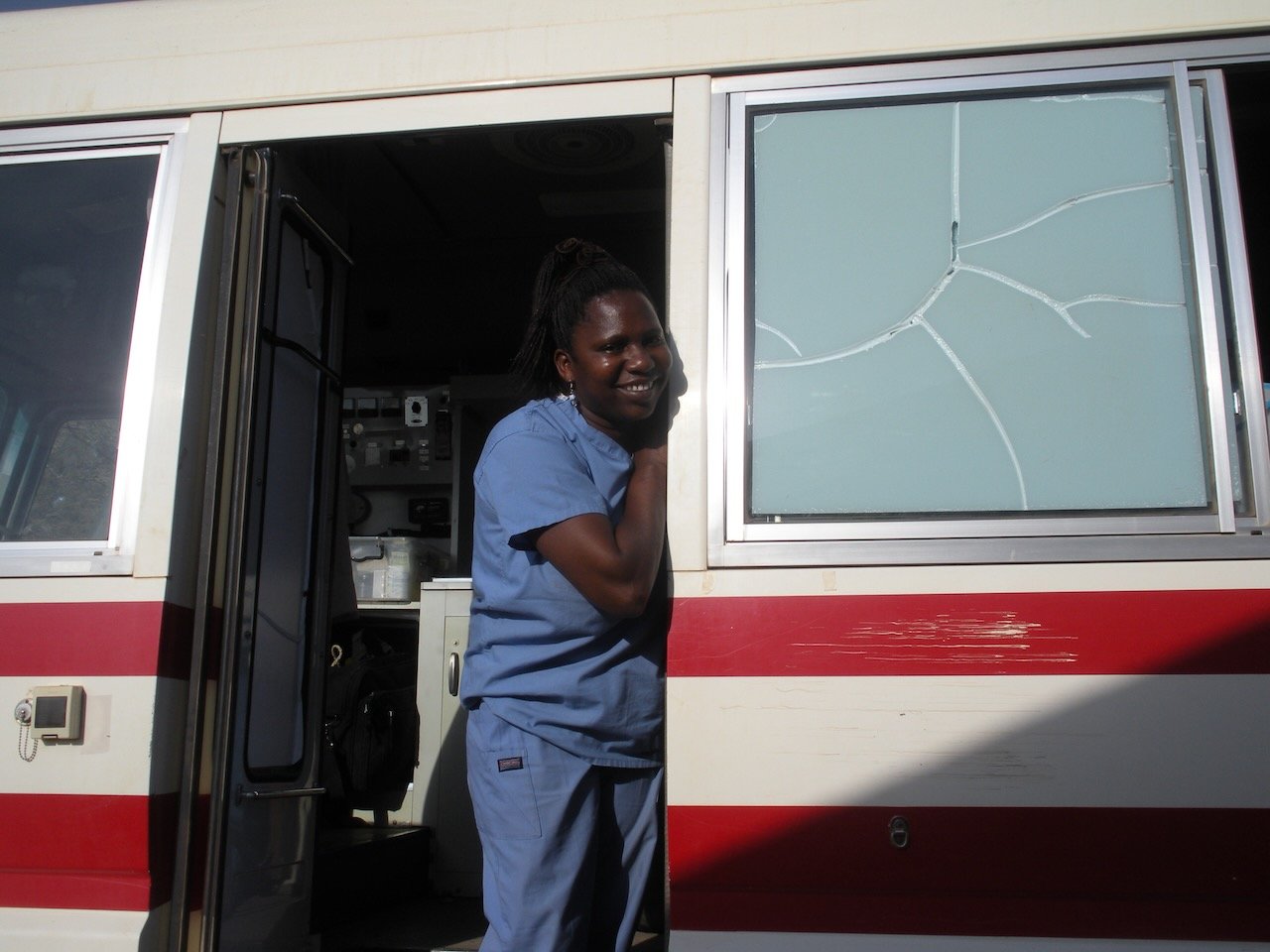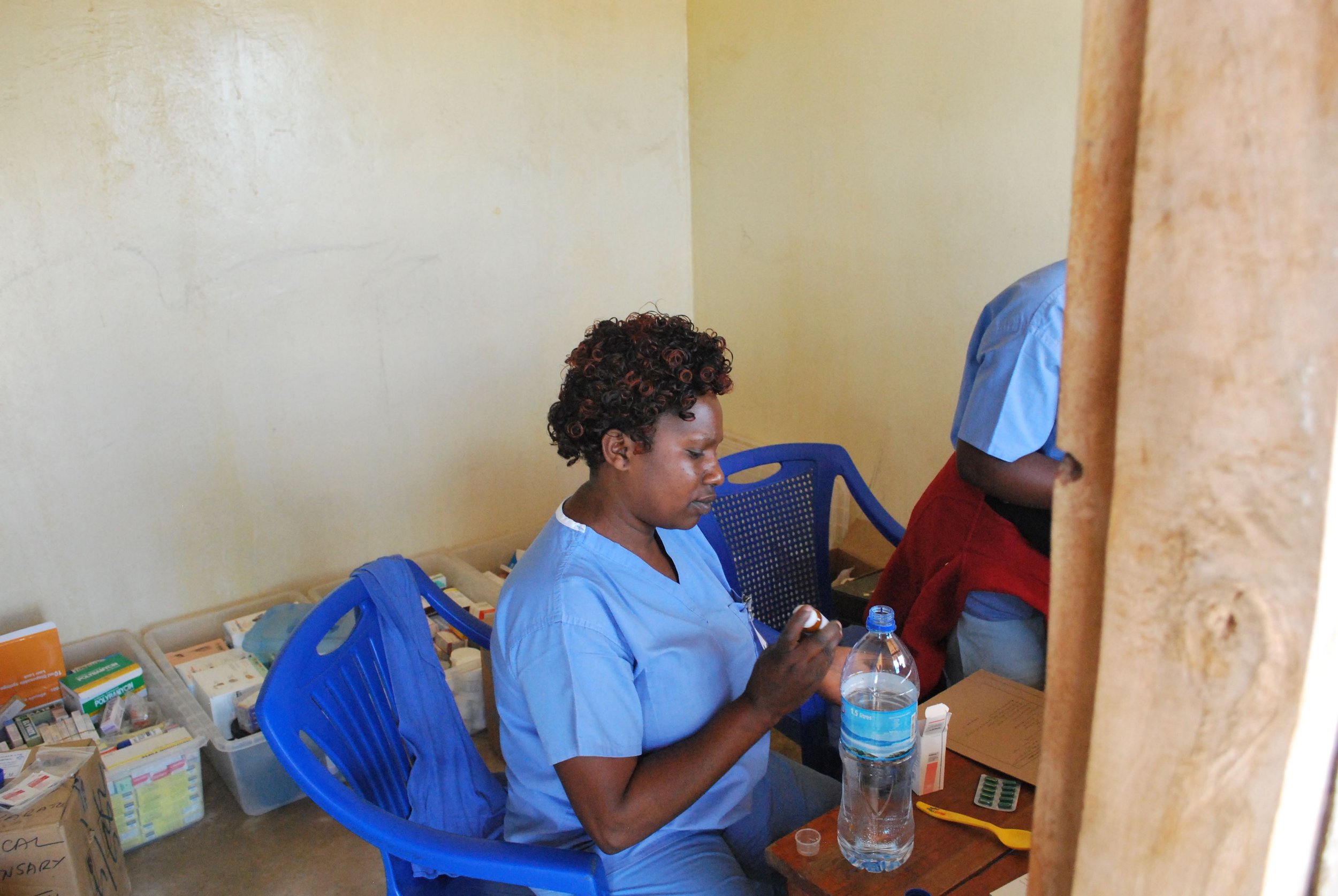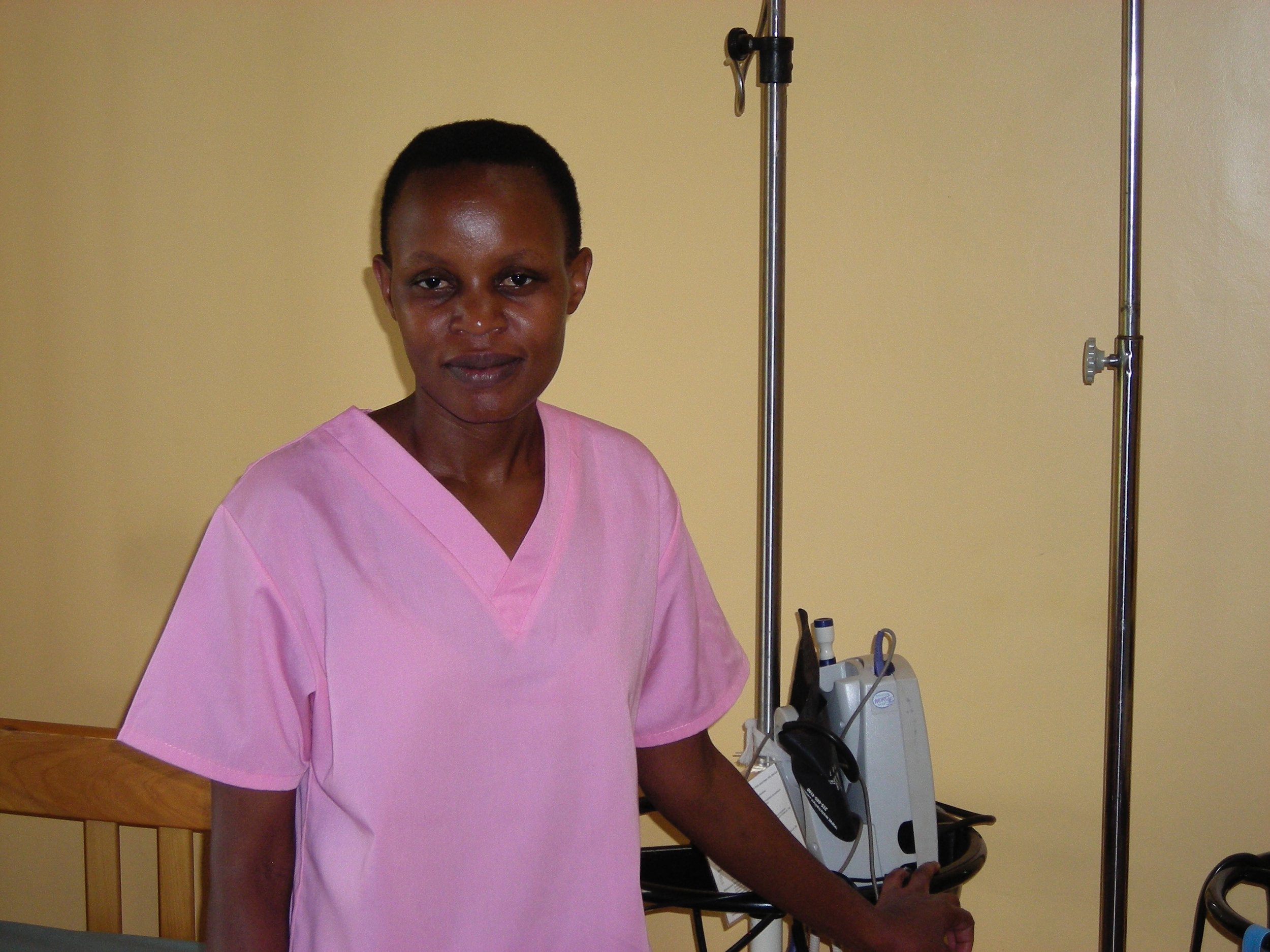Anita.
World Health Day advocates that everyone should have access to quality healthcare services when and where they need them without facing financial hardship. Unfortunately, many people still lack access to essential and life-saving health services, especially those living in rural areas, which can result in preventable illnesses, disabilities and even death.
FAME continues to work towards health equity and improved healthcare access to underserved communities in rural Tanzania. FAME believes everyone should be able to achieve good health and well-being regardless of where they live or their social and economic status.
Today we share a story about the lack of access to healthcare due to financial difficulties. Anita* is a 35-year-old single mother of one who is suffering from Multiple Sclerosis (MS). MS is a chronic autoimmune disease that affects the central nervous system. Unfortunately, MS is a relatively rare condition in Tanzania and progress has been very limited regarding the diagnosis and treatment of MS in Tanzania (MSIF).
After diagnosis, Anita could not afford the MS medication due to its unavailability locally and high prices in neighboring countries. Access to affordable MS medications is not just an issue in Tanzania but also a critical issue in the United States (NMSS). The cost of MS drugs has doubled in the last seven years, despite introducing a generic form of the widely used drug. Access to treatments is difficult in many countries and often impossible in others.
Anita’s Story
Anita* lives in Arusha with her 6-year-old son. She works in a rehabilitation center for disabled children as an occupational therapist. Her first symptom was muscle weakness and stiffness, making it difficult to move around or perform everyday tasks. Then came the deliberating extreme fatigue. She also had difficulty with coordination and balance, leading to falls and challenges performing activities that require balance.
“When the symptoms started in 2019, I went to an Arusha hospital where the doctor ordered a brain MRI, but she ruled out MS and gave me medicine to reduce my symptoms, which worked. However, in early 2022 the symptoms became worse. Eating became a problem as anything in my mouth, whether food or a toothbrush, would trigger numbness on my right side, which stopped me from talking. I would faint in public and be completely out for around five minutes, which was most embarrassing. I returned to the doctor, who sent me to KCMC referral hospital in Moshi for another MRI. It is here that I was diagnosed with MS.”
Step 1: Dr. Wells demonstrates to Anita how to self-administer injections with a dummy injector for optimal medication management.
Step 2: Now for the real thing!
Step 3: Anita winces in discomfort as compassionate Dr. Wells administers the injection.
Step 4: “It’s not so bad!” A relieved Anita flashes a smile after Dr. Wells administers a successful injection.
“I was in denial of my diagnosis and refused to believe that I had MS. Sadly, my symptoms worsened and started affecting my job performance and I had to share my struggles with my supervisor. She recommended that I come to FAME and see Dr. Rubenstein for a second opinion.”
Dr. Michael Rubenstein has been coming to FAME for the past thirteen years with neurology residents and fellows from the University of Pennsylvania and Children’s Hospital of Philadelphia. In partnership with FAME, they provide neurological care for those living in our catchment area both at FAME and in outreach clinics where they venture into the villages.
“After Dr. Rubenstein confirmed my diagnosis, I quickly realized that MS medication was unavailable in Tanzania. This added to my feelings of depression that I already had after my diagnosis. I didn’t know what to do. While the medication does not treat MS, it helps with the symptoms and pain and would give me some normalcy and quality of life. I was told I could get it in a neighboring country at $8,600 per year. Not even in my wildest dreams would I afford this.”
For a year after diagnosis, Anita did not take any medicine. It just wasn't attainable. In 2023, after sourcing for approval from the Tanzania Ministry of Health, Dr. Rubenstein and his residents brought her MS medicine from the US, which had been donated. They brought enough medication to last her for more than six months, with plans to bring additional medication when they return in September.
“I cannot thank Dr. Rubenstein and his residents enough! They have saved my life. My biggest worry was that this disease would affect my job so much that I couldn’t provide for my son.”
Anita says that she has suffered a lot of stigma surrounding her disease, including from her own family.
“My family did not and still does not understand this disease. My auntie always tells me: ‘This disease of yours is so weird one would rather have HIV!’ They have taken me to church many times to be prayed for as they believe only God can cure me!”
“The biggest challenge is losing my independence. I often have to rely on relatives for help. The other day I fell in front of my son and he was terrified! So we can’t be just two of us in the house alone.”
Neurologist Resident, Dr. Wells Seldes Andres, teaches Anita how to inject her medicine. He assures her that the medicine has no significant side effects except maybe a sore arm. He also tells her that MS doesn't change life expectancy with proper treatment.
“I’m so happy! Looking forward to getting my life back.”
Dr. Michael Rubenstein (far left) talks to Anita and reassures her.
Dr. Michael Rubenstein
“Multiple sclerosis is a disease that is thought to be very uncommon in sub-Saharan Africa. However, recent data suggest its incidence is increasing here just as in other parts of the world.
There are several reasons why it is uncommon here, including environmental and hereditary reasons, the lack of specialists (neurologists) and the lack of technology used to make the diagnosis that has only recently existed in this region of Africa. Unfortunately, due to the belief that it is uncommon here, there are also very few studies looking at MS in East Africa, which will hopefully change in the coming years as we learn more.
In the thirteen years that I have been coming to Northern Tanzania, there have been a number of cases in which we were concerned about MS. Still, due to the very limited resources (monetary and technological), we have been unable to pursue the diagnosis fully.
Anita is one of the more fortunate patients who were not only able to have the appropriate study done but, more importantly, was able to come to our clinic where we confirmed her diagnosis and were able to begin treatment against all odds as there are no medications in Tanzania that are specifically designed for MS.”
*The patient’s name has been changed to protect their privacy and permission was secured to share her story.
















